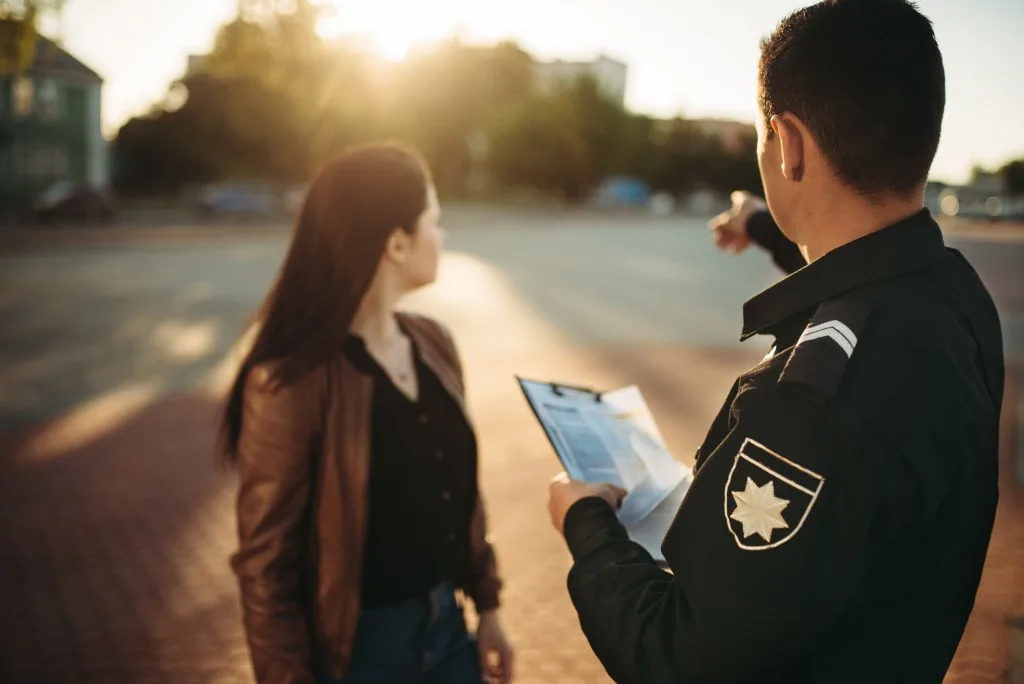Before you buckle your seatbelt or put the key in the ignition, there are a few things you’ll need. No matter how good you are at driving, there’s a chance that someone will ask you to show a few driving documents.
So what are the three items that every driver should carry? Let’s look and see!
What Documents Do I Need in My Car?
“License, registration, and proof of insurance” will likely be one of the first things a law enforcement officer will say when they stop you. For the interaction to go as smoothly as possible, you’ll want to present valid copies of these documents.
However, many drivers forget to put an updated copy of their vehicle registration or insurance policy in their vehicles. Depending on which items you’re missing, it could cause some legal troubles for you.
What Happens If You Drive Without These Documents?
What can happen if you drive without these items will depend on which things you’re missing and who needs to see them. In general, if law enforcement pulls you over and you do not have your driver’s license, you’ll likely receive a fix-it ticket.
This ticket means you’ll have a certain amount of time to present your valid driver’s license. Once you do, the court will dismiss the ticket from your record. However, you’ll receive a citation if you do not present your license. In addition, if they catch you driving without a license again, the consequences can be extremely severe. Fines can be $100 to $1000, and you could spend time in jail.
Driving without proof of insurance or registration is a misdemeanor offense. However, the consequences of driving without these documents will typically depend on your interaction with law enforcement officers.
If you’re respectful, the best-case scenarios are that you walk away with a fix-it ticket, a citation, or a verbal warning. However, law enforcement has the authority to tow your vehicle and even arrest you on the spot. You should not assume the best-case scenario, so it is best to prepare.
Pro Tip: Don’t get stuck having to explain yourself to a cop. Use these tips on How To Avoid Radar Speed Traps.

Where Should You Keep Important Documents in Your Vehicle?
You want to organize your vital documents and keep them in a convenient place to reach from the driver’s seat. Most drivers place these documents in the glove box or a center console storage spot if their vehicle has one. You want to ensure they’re easily accessible and keep them up to date.
It’s crucial to remember that you should wait until law enforcement approaches your vehicle and requests the documents before you start reaching for them. Officers will be very uncomfortable with anyone in a car reaching for items as they approach.
It’s even a good idea to inform the officer where the documents are in your vehicle before you reach for them. This shows respect for the officer and can help ensure there are no miscommunications when you start going for the documents.
Can You Use Your Phone to Show Proof of Insurance?
Like most drivers, you may forget to replace the proof of insurance you keep in your glove box every time your policy renews. Luckily, all 50 states, including Washington, D.C., allow drivers to show proof of insurance on their mobile devices.
Many insurance providers have mobile applications. These apps can help you access your insurance information quickly.
However, it would be best if you only relied on this as a backup plan as you never know when your phone battery will die, or you may not have cell service. While not all apps require an internet connection to access these documents, it’s better to be safe than sorry.

What Documents Should You Not Store in Your Vehicle?
While you want to ensure you always have your license, registration, and proof of insurance when driving, there are some items you should never store in your vehicle. You should not keep the title of your car, personal identification, or financial documents.
If someone breaks into your car, you could be in a messy situation if they steal your identity. With enough information, identity thieves can open credit cards and attempt to take out loans in your name. Depending on how often you check your credit, they could already be spending money and using your identity to take out loans, leaving you with a mess.
Pro Tip: Always dreamed of having a cherry red car? We uncovered Is Your Vehicle Color Increasing the Odds of Getting a Ticket?
Keep Your Documents Handy When Driving
You must always carry the correct documents when driving. Your glove box isn’t only a place to store extra fast food napkins and sauce packets.
Ensure you keep your vital records in a protective folder or envelope and update them. You should immediately replace the registration and proof of insurance in your vehicle as soon as you renew them. While you hope never to need to present them, it’s best to know exactly where they are.
Are your vital documents up to date?
Discover the Best Free Camping Across the USA
To be honest with you, we hate paying for camping. There are so many free campsites in America (with complete privacy).
You should give it a try!
As a matter of fact, these free campsites are yours. Every time you pay federal taxes, you’re contributing to these lands.
Become a FREE CAMPING INSIDER and join the 100,000 campers that love to score the best site!
We’ll send you the 50 Best Free Campsites in the USA (one per state). Access the list by submitting your email below: